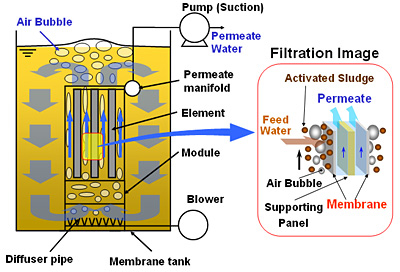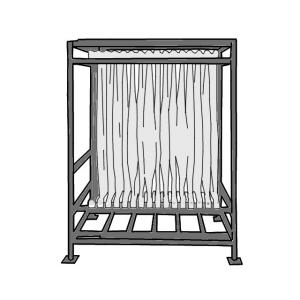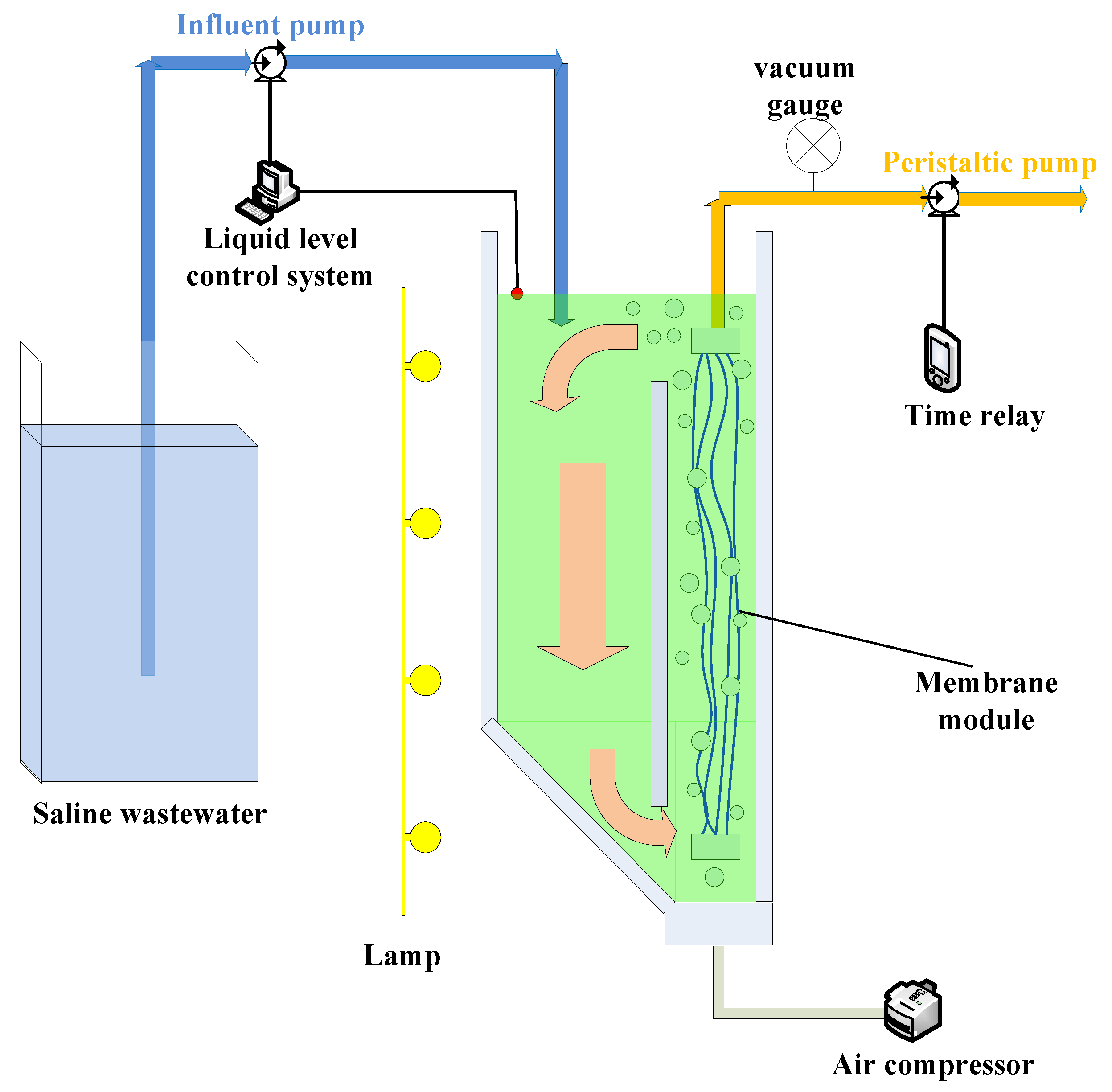Exactly How Membrane Bioreactors Are Transforming Water Filtration Solutions
The emergence of membrane bioreactors (MBRs) represents a significant advancement in the field of water filtration, merging biological treatment procedures with innovative membrane filtration innovations. This assimilation not just boosts the high quality of dealt with effluent however likewise addresses metropolitan area restraints, making MBRs especially appropriate for largely booming areas. As worldwide water deficiency increases, the duty of MBRs in assisting in drinkable water reuse and lasting water management becomes increasingly important. Yet, the implications of this innovation prolong beyond efficiency-- what challenges and chances lie ahead for its widespread execution?
Review of Membrane Bioreactors
Membrane layer bioreactors (MBRs) stand for a considerable development in water purification technology, as they integrate organic therapy procedures with membrane filtering. This integration enhances the performance of wastewater therapy by utilizing bacteria to degrade natural contaminants while concurrently utilizing semi-permeable membrane layers to different treated water from put on hold solids and pathogens.
The MBR system typically includes a biological reactor where the microbial population metabolizes impurities, followed by a membrane layer filtration device that preserves biomass and enables only clean water to go through. This twin capability causes higher effluent quality compared to standard therapy techniques. MBRs can be run in both batch and constant circulation settings, using flexibility in design and application.
They additionally enable the healing of water for reuse, hence adding to water sustainability campaigns. In general, MBRs are at the forefront of enhancing water treatment efficiency and top quality, showcasing the potential for innovative options in environmental monitoring.
Benefits of MBR Modern Technology
The integration of organic therapy with membrane layer filtering offers many advantages for water filtration procedures. Among the main advantages of Membrane Bioreactor (MBR) modern technology is its capability to properly remove both not natural and natural impurities, leading to premium effluent. The membrane layers function as a physical barrier, preventing suspended solids and virus from going through, which enhances the overall safety and security and reliability of treated water.
Additionally, MBR systems need a smaller impact compared to conventional treatment approaches, enabling more efficient area use. This portable style is particularly helpful in metropolitan setups where land is restricted. MBRs also show functional versatility, suiting differing influent top qualities and circulation prices without considerable efficiency destruction.
Additionally, the process provides enhanced nutrient removal abilities, especially for nitrogen and phosphorus, which are essential for preventing eutrophication in obtaining waters. The minimized sludge production linked with MBR innovation additionally equates to lower disposal prices, making it an economical remedy in the future - Membrane Bioreactor. Overall, the benefits of MBR technology placement it as a leading selection for cutting-edge and lasting water purification systems, addressing both ecological and financial worries
Applications in Water Filtration
Applications of Membrane Layer Bioreactor (MBR) innovation in water purification are diverse and impactful, attending to various treatment needs throughout multiple fields. MBRs effectively combine organic therapy procedures with membrane purification, making them suitable for municipal wastewater treatment, commercial effluent management, and also potable water reuse efforts.
In metropolitan settings, MBRs are significantly employed to improve the high quality of treated wastewater, enabling for conformity with strict discharge guidelines and helping with the recycling of water for irrigation and non-potable uses. Their small style also makes them appropriate for metropolitan atmospheres where room is limited.
Industrially, MBR innovation is used to treat process water and wastewater, specifically in fields such as food and drink, pharmaceuticals, and fabrics. By efficiently removing contaminants and put on hold solids, MBRs aid industries reduce ecological effects while recovering useful resources from wastewater streams.
In Addition, MBRs are acquiring traction in decentralized water therapy applications, where small systems can be released in remote areas or developing regions. This adaptability allows communities to accomplish lasting water management remedies, enhancing access to tidy water while lowering reliance on traditional treatment approaches.
Instance Studies and Success Stories

In one more example, a textile manufacturing facility in Bangladesh adopted MBR technology to resolve its wastewater obstacles. The system lowered chemical oxygen need (COD) degrees from 1,200 mg/L to much less than 100 mg/L, therefore meeting governing requirements and substantially decreasing environmental influence.
The University of Cape Community's MBR installment has proven effective in dealing with greywater for non-potable reuse on school. This project not only more info here conserves potable water but likewise acts as an academic model for sustainable techniques.
Furthermore, a seafood processing plant in Norway used MBR innovation to deal with More Bonuses effluents consisting of high degrees of organic issue, achieving over 90% contaminant elimination. These study emphasize MBR modern technology's versatility and its crucial function in boosting water high quality throughout varied applications.
Future of Water Therapy Solutions
As international water scarcity and air pollution challenges heighten, ingenious water therapy remedies are coming to be progressively important to ensure sustainable accessibility to clean water. The future of water therapy lies in the integration of innovative innovations that improve the performance and performance of purification procedures. Membrane bioreactors (MBRs) are at the center of this development, incorporating organic therapy with membrane layer purification to create premium effluent ideal for numerous applications.

Emerging fads such as resource recuperation from wastewater, including nutrients and power, will additionally transform therapy facilities right into environment-friendly hubs. Furthermore, advancements in nanotechnology and membrane layer materials promise boosted performance and longevity of filtration systems.

Final Thought
To conclude, membrane layer bioreactors represent a considerable innovation in water purification innovations, properly combining organic therapy with advanced membrane purification. The numerous advantages, consisting of enhanced effluent top quality and decreased spatial demands, make MBRs especially suitable for urban applications. Their duty in drinkable water check it out reuse and lasting water management highlights their value in dealing with international water deficiency difficulties. Continued r & d will further boost the efficacy and adoption of MBR innovation, guaranteeing a resistant future for water treatment options.
The development of membrane bioreactors (MBRs) stands for a significant improvement in the field of water filtration, merging biological treatment procedures with cutting-edge membrane layer filtering innovations. As international water scarcity intensifies, the function of MBRs in assisting in drinkable water reuse and sustainable water monitoring comes to be increasingly important. They additionally allow the recovery of water for reuse, hence adding to water sustainability efforts.As international water deficiency and contamination difficulties heighten, innovative water therapy remedies are ending up being increasingly necessary to ensure sustainable access to clean water. Their duty in drinkable water reuse and sustainable water administration highlights their relevance in resolving worldwide water scarcity difficulties.